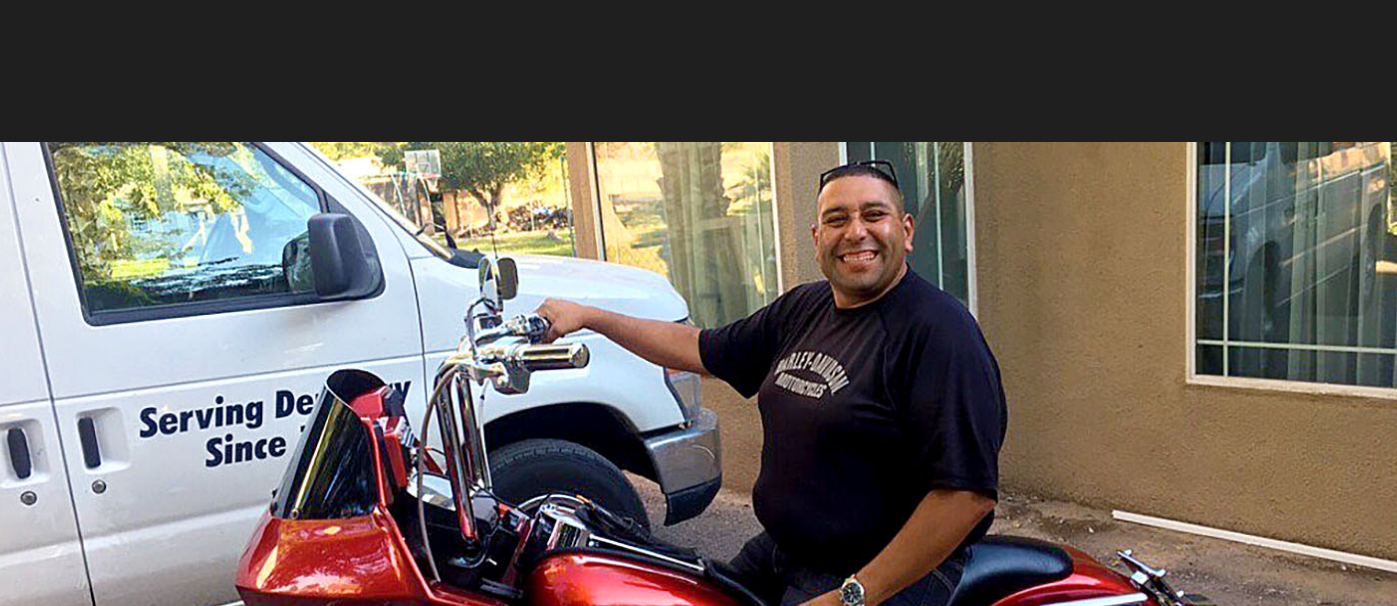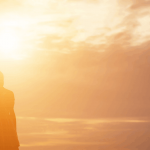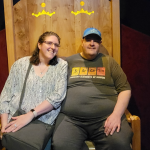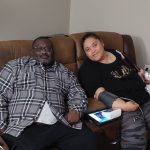Richard Works for His Quality of Life – and HHD Works for Him
When we talked to Richard about life as a more frequent home hemodialysis (HHD) patient, he was sitting in a chair, doing dialysis therapy at home – as if it was the most normal thing in the world. That’s because – for Richard – it is just that. HHD is another part of his day, his routine, his life. And it’s something that helps him live his life on his terms.
“I’m dialyzing as we speak,” says Richard, from the comfort of his home in El Paso, Texas. “And when I’m done, I’ll be ready for the next thing. That’s what I like about HHD. The flexibility I have for whatever is going in my life.”
Richard takes a lot of pride in his lawn and his GMC truck. He spends a lot of time keeping them neat and clean and says his neighbors take notice. “Some of them say I’m making them look bad,” he says jokingly. “Their wives ask them ‘How come you can’t be more like Richard?’”
Never afraid of a hard day’s work, Richard spent 25 years as the environmental manager for a local school district. He enjoyed his job because it was “always something different.” One day he could be dealing with a pest control problem and the next he might be taking care of mold or asbestos clean-up.
“I’m dialyzing as we speak,” says Richard, from the comfort of his home in El Paso, Texas. “And when I’m done, I’ll be ready for the next thing. That’s what I like about HHD. The flexibility I have for whatever is going in my life.”
When end stage kidney disease (ESKD) led to an extended medical leave, he had one goal in mind – “get back to work and be as productive as possible.” He tried peritoneal dialysis, but the treatment times during the day did not work well for him, so he shifted to in-center. Richard returned to work after several months, but six months later his doctor advised a medical retirement.
“That was so hard for me,” he recalls. “I loved my job and my coworkers. They treated me so well. When I wrote my resignation letter I was crying like a baby.”
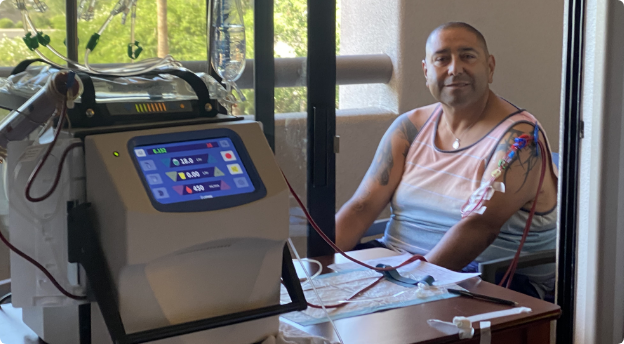
Although forced to give up his position, Richard wasn’t giving up on his health. He’d heard about HHD and liked the sound of it, but the thought of self-cannulating was scary. Then something gave him the push he needed.
While dialyzing in-center, Richard fell asleep, something he said happened often. Except this time, when he woke up, he was on a crash cart. “I was unresponsive,” Richard explains. “They couldn’t wake me up and called EMS, who got me back going. Come to find out my blood pressure was super low. It had always been normal before that.”
Following his scare, Richard remembered a Kidney Care Advocate who spoke with him about the many potential benefits of more frequent HHD, including being gentler on the heart. The memory was like a lightbulb being turned on. “Oh my gosh, I can have less stress on my heart!” he thought.
The first step Richard took was learning to self-cannulate. A tech at the clinic was assigned to help him create a buttonhole so that he’d have an easier time. After a few weeks, he was ready to start HHD training, along with his wife Maria. He said it wasn’t long before he noticed some improvements.
“As I was going through training, the home dialysis nurses kept asking how I felt,” he says. “I noticed that I wasn’t falling asleep during treatments. And when I got home, I wasn’t as tired. I thought ‘Wait, I’m not the same person I was in-center! I have energy to do stuff!”’
Together, Maria and Richard finished training in about four weeks and started HHD at home. Richard says at first he was nervous to do dialysis without nurses present, but it soon felt normal. And if needed, he knows his care team and NxStage Customer Service are just a phone call away.
Three years after starting, Richard says HHD continues to help him feel better. He’s fishing with his friends, started pest control and landscaping businesses, and looks forward to buying a motorcycle – something he gave up after getting sick. But the biggest and best change is that HHD frees up Richard to travel more, which is very important to him and his family.
“As I was going through training, the home dialysis nurses kept asking how I felt,” he says. “I noticed that I wasn’t falling asleep during treatments. And when I got home, I wasn’t as tired. I thought ‘Wait, I’m not the same person I was in-center! I have energy to do stuff!”’
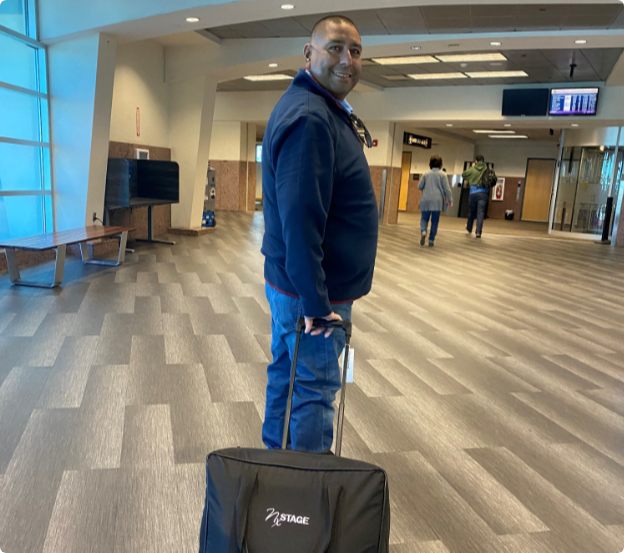
For many years, Richard and Maria have made regular trips to see their 12-year-old granddaughter compete in cheer contests. These journeys take them to Florida, California, Arizona, and beyond. Although he still made it a priority, Richard says traveling while in-center was tough. He’d have to arrange for treatments at clinics away from home and chair times were rarely convenient.
“Sometimes therapy would interfere with our schedule or competition times, and often I’d have to get an Uber back and forth to the clinic,” he explains. “Then I’d come back and have no energy. It wasn’t a nice way to vacation.”
“Some of our favorite places to travel are Tampa and Orlando, Florida, because we love the beaches and the theme parks,” Richard continues. “When we’re there, I’m the only one who can keep up with my 3-year-old granddaughter. She has lots of energy and she wants to do everything with her grandpa.”
Now that he’s on HHD with a NxStage cycler, Richard says he rents a minivan and they just put his machine in the back and take off. If traveling by air, his machine flies with him. NxStage handles shipping supplies, and he can plan therapy for times that make the most sense with their vacation schedule. Now he never worries about missing his granddaughter’s performances.
“Some of our favorite places to travel are Tampa and Orlando, Florida, because we love the beaches and the theme parks,” Richard continues. “When we’re there, I’m the only one who can keep up with my 3-year-old granddaughter. She has lots of energy and she wants to do everything with her grandpa.”
Richard says spending time with family is a big motivator for him, and one of the reasons he’s trying to get a kidney transplant. He’s on transplant lists in Phoenix, San Antonio, and El Paso, and is optimistic he’ll get a call soon. But meanwhile, he’s focused on living the best life he can on HHD.
“I’ve got an hour and 30 minutes left on my treatment,” he said at the end of our chat. “And I’m already thinking about what I’m going to do next. When I was in-center, all I’d be thinking about is laying down.”
Not all patients may experience these benefits
*Richard is a NxStage Patient Advocate

